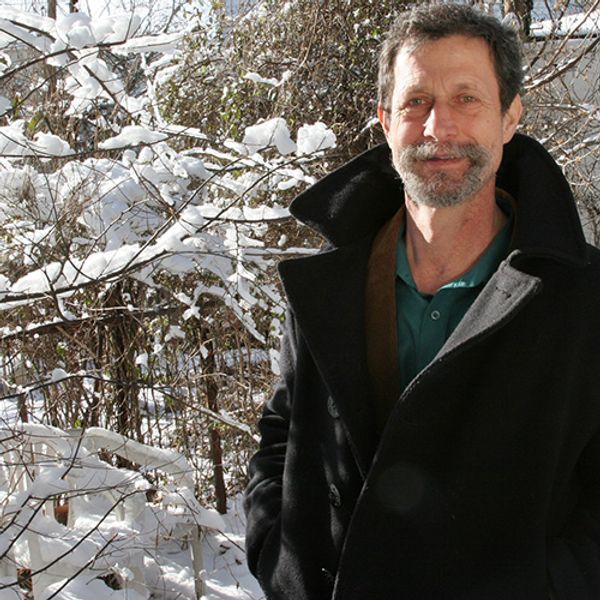Lia Purpura, Parasol Mushroom (detail), featured in AGNI 102
1.
My uncle Ivo thought all workers were frauds. All day, with a cunning smile on his face, he would hover over a carpenter, watching him measure, calibrate, bisect angles, study a blueprint, saw, drive nails, drill in the anchors for molly bolts. My uncle would be amazed at the skill of the deception: sawdust perhaps smuggled in a cuff, hammer blows so natural, so unforced. Ivo, who had an eye for cost, would appreciate the expense of the pantomime: the fake spirit level, decoy plumb-line.
When the work was done, Ivo was complacently speechless. An imitation wall, a contraband table: how perfect. He paid without quibbling, perhaps with a wink: I’m on to you.
And at the opera: the musicians are making sawing motions, the sound is piped in. At the stadium: the match is fixed. It’s the smaller boxer who will win, the one with no counterpunch, who never moves his feet. At the clinic: the doctors are making up those long Latin names. At the polling booth: the secret police rule.
You were a carpenter yourself, I tell him, and he answers, That’s how I know.
Now he lies on his sickbed, all his attention on the trowel marks on the ceiling, as if to memorize them.
As I sit beside him, I try to share in his wild foreboding. But I just resent the narrow metal chair butting into the small of my back, the lateness, the time with my wife missed.
Threshold, I tell myself; can that word spark me? The minute hand jots forward on the wall clock with a continual audible burst, as if to forge a way from one moment to the next.
But all I can feel is his weariness: the weariness of a man who built a stranger’s house.
2.
All her life Aunt Eva believed in catastrophe—don’t throw out the onion peel, tomorrow you may need it for soup, or to dye your clothes for mourning. Don’t live on a low floor. Tomorrow the wave. Don’t visit the capital, its museums, its vast parks and libraries. Tomorrow the snipers.
If you love another person, they will be taken from you, but slowly, as a comb parts hair.
She shows me faded clippings to prove it. I object: Those fires, those crowds in flight, that smoke over Tartu, they’re simulations. She’s hurt, as if I criticized a poem she labored over. She survived so much, so long ago. Condor Legion, Red Army, Forest Brotherhood.
Now I visit her at Holy Name. The empires are ramping up their forces. Surrogate armies are massing on a mountainous border. Even the nurse, pausing at the doorstep with a full bedpan, turns to speak of the coming escalation, softly, raptly, as if it were a secret they shared. Eva nods.
As if that ward with its two-tone pastel walls, that blinded window, that Bible open to Revelation, were just a stage-set.
Already I’m listening for a radio in the corridor, a long-expected bulletin: the lilt of an appalled, triumphant voice.

D. Nurkse
D. Nurkse is the author of twelve books, including A Country of Strangers, a “New and Selected” (Alfred A. Knopf, 2020), and Love in the Last Days (Alfred A. Knopf, 2017). (updated 4/2023)
